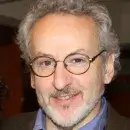
Dr.
Donald E. Ingber
Harvard University
Bioengineer; Educator
Area
Mathematical and Physical Sciences
Specialty
Engineering and Technology
Elected
2016
Much of Ingber's work centers on the fundamental role that mechanical forces play in biology, and his discovery that cells are structured at the molecular level using tensegrity architecture led to new insights into the molecular basis of cellular mechanotransduction and developmental control. By spanning biology, engineering, architecture and design to pursue his scientific vision, he helped to pioneer multiple new fields including mechanobiology, tissue engineering, nanobiotechnology and biologically inspired engineering. His human organs-on-chips technology for replacement of animal testing received international design awards and is in the permanent design collection of the Museum of Modern Art in New York. His experience in interdisciplinary 'convergence' research, technology translation and new models for innovation in the academic setting is evidenced by his accomplishments as the Founding Director of the Wyss Institute for Biologically Inspired Engineering at Harvard University.
Last Updated